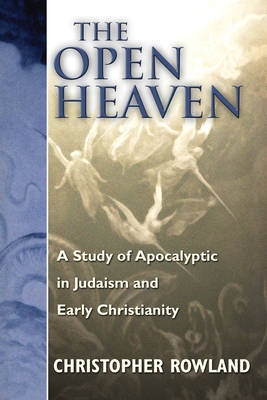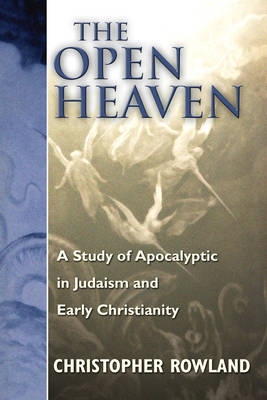
- Afhalen na 1 uur in een winkel met voorraad
- Gratis thuislevering in België vanaf € 30
- Ruim aanbod met 7 miljoen producten
- Afhalen na 1 uur in een winkel met voorraad
- Gratis thuislevering in België vanaf € 30
- Ruim aanbod met 7 miljoen producten
Zoeken
The Open Heaven
A Study of Apocalyptic in Judaism and Early Christianity
Christopher Rowland
Paperback | Engels
€ 74,95
+ 149 punten
Omschrijving
The Open Heaven offers a comprehensive discussion of Jewish apocalyptic literature and themes in the Second Temple period and in early Christianity. In it there is a sustained challenge to the widespread view that apocalypticism is a form of eschatology, and, it has been widely recognised as a significant contribution to the discussion of apcocalypticism in religion since it was first published twenty years ago. By concentrating on the revelatory character of apocalyptic texts rather than their diverse contents the author suggests that it is this aspect of the literature which best enables us to understand their distinctive religion. The book offers a sustained argument for the iew that apocalyptic literature is primarily about the disclosure of heavenly wisdom which offers recipients an understanding of life in the present. He also suggests that there ma be some evidence to support the view that apocalypses include reports of visionary experience. The approach to apocalypticism in early Christianity stresses the importance of the visionary element as a decisive element in the history of Christa origins.
Specificaties
Betrokkenen
- Auteur(s):
- Uitgeverij:
Inhoud
- Aantal bladzijden:
- 576
- Taal:
- Engels
Eigenschappen
- Productcode (EAN):
- 9781592440122
- Verschijningsdatum:
- 1/08/2002
- Uitvoering:
- Paperback
- Formaat:
- Trade paperback (VS)
- Afmetingen:
- 160 mm x 230 mm
- Gewicht:
- 811 g

Alleen bij Standaard Boekhandel
+ 149 punten op je klantenkaart van Standaard Boekhandel
Beoordelingen
We publiceren alleen reviews die voldoen aan de voorwaarden voor reviews. Bekijk onze voorwaarden voor reviews.











